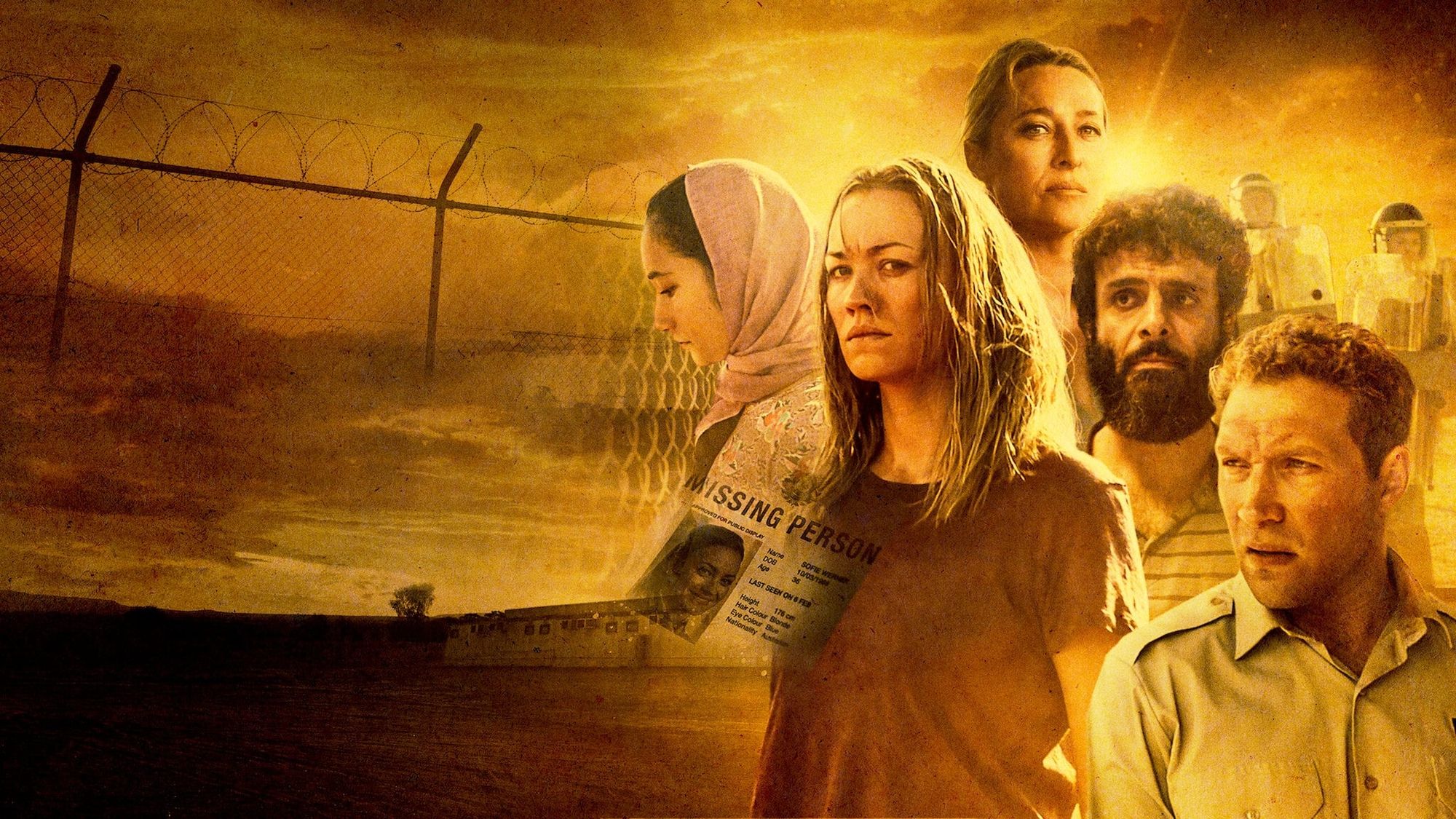Inspired by Origin? Here’s a Watchlist with an Australian Perspective
Ava DuVernay’s Origin might be focused on American culture, but it tackles core human issues that resonate here in Australia. If Origin spoke to you, we’ve chosen five home-grown movies and series that make perfect follow-up viewing.
good.film
2 years ago

Share

Our recent screenings of Origin were eye-openers - and not just because of the powerful themes Ava DuVernay put on screen. We’re talking about the conversations that took place after the lights came up.
For a film with an American viewpoint, it was important for us to hear about why the film could be relevant here, in Australia, for Australians. And it turns out that Origin resonated with many of our audience in surprisingly different ways.
Of course, there are countless perspectives to share - so we’ve narrowed down some of the best for you. Here are five Australian-made documentaries, series and films you can stream at home today. If Ava’s film unlocked something for you, these titles could make for the perfect follow-up viewing.
In My Blood It Runs
With a 100% critics rating, filmmaker Maya Newell’s 2019 documentary pulled in glowing praise. Impactful. Intimate. Compassionate. Remarkable. The New York Times called it “ferocious”. But that’s not the only reason we’d line up this Northern Territory-set doco after Origin’s credits roll.
Consider In My Blood It Runs the flip side of Origin: where DuVernay’s film centred on an author discovering the realities of disenfranchised communities from the outside, In My Blood It Runs puts 10 year old Dujuan Hoosan centre stage for us to feel HIS existence first hand. As Dujuan said recently, reflecting on the film, “I wanted to make young people feel like they were there. I want to show the world how us young Aboriginal kids are treated on the streets in Australia.”
Not just in the streets, but in the classroom. Echoing the Origin scenes set in Indian schools (where Dalit children weren’t even allowed to sit at desks), In My Blood It Runs focuses on Dujuan’s education, and how the “white settlers” school system - based on whitewashed history, and taught by white teachers - leaves the bright and gifted Dujuan (he can speak three languages) feeling angry, disengaged and at risk of a pathway of juvenile crime.
“In My Blood It Runs shows us that colonialism is not just a painful legacy to grapple with, but an ongoing process necessitating resistance.”
~ Brett Pardy, Seventh Row
Like Origin, In My Blood It Runs is a gentle but deeply affecting probe into how a system can cause so much pain to those who don’t “fit” within its design. As The Guardian wrote in early 2020: “Newell makes a powerful point that there is no one version of Australia; no single country we all experience. The Australia each of us knows differs dramatically according to our place and privilege.” It’s an observation that sounds just like one of Isabel Wilkerson’s own.
Fun fact: the year after the film released, Dujuan Hoosan was awarded the Liberty Victoria Human Rights Award. The year after, he became the youngest person ever to address the Human Rights Council at the United Nations.
ADD IN MY BLOOD IT RUNS TO MY WATCHLIST
Shayda
On the surface, Shayda examines domestic violence as a desperate mother seeks to protect her child. But as we wrote in our Guide to the film when it was released in October 2023, this is more than simply a survival story: “Shayda is presented to us as an offering. It wants to say, yes, a man forced us to flee our home - but we refuse to be torn from our culture.”
With her debut feature, Tehran-born, Australian-raised Noora Niasari gently weaves a love letter to her Iranian culture, with tender and textured moments she describes as “fundamental to the story”. Like Origin, the film echoes with startling truth - because, like Origin, this isn’t a fictional story. As a young girl, Niasari herself was a version of the daughter we see on screen.
“I grew up with all of the beauty of our culture. You can feel the joyous moments even deeper when you have that tension or darkness around it.”
~ Noora Niasari
With warm empathy, Shayda points out how culture can both support AND oppress, and how deeply embedded social traditions can undermine women from supporting other women. It’s a universality that, in another echo of Origin, helped Shayda break free of its own cultural “box” to connect with audiences worldwide. As Niasari has said, “That feels liberating and cathartic.”
Stateless
Non-linear timelines… a string of interconnected strangers… strong visual motifs. Yep, the parallels are already strong between Origin and this 6-part ABC series, co-directed by two of Australia’s leading female drama directors, Emma Freeman and Jocelyn Moorhouse. What they crafted - an interwoven story about disparate, desperate characters within an Australian detention centre - is compelling. “Stateless is not some dry cerebral experience,” wrote critic Luke Buckmaster. “The drama comes alive. It’s gripping; it’s thrilling; it hurts.”
As Stateless oscillates between the narratives of the Aussie flight attendant, the Afghan father, the morally conflicted guard and the pressurised female GM of the centre, it interrogates the ethics and the harsher truths behind Australia's immigration policies. It’s a close-up look at what ideals like “identity” and “freedom” really mean for asylum seekers and refugees, with nods to the lasting trauma they (and their children born into detention) can experience.
“It's a considered, high-end drama with great performances and a beating soul that asks Australians if we're comfortable with what gets done in our name.”
~ Wenlei Ma, News.com.au
Physically and emotionally, these characters all come from very different places. But in a very real sense, they’re all in a kind of limbo, dreaming of a new life. Much like Origin, Stateless is a moving look at the resilience of the human spirit when stripped of our most basic rights.
The Australian Wars
As this 3-part SBS series states, there are more than ten thousand monuments across the country that honour the war dead. But what about the battles that established Australia?
Arrernte and Kalkadoon nations filmmaker Rachel Perkins sets out to answer that, employing expert interviews, archival research and incredible reenactments to explore the defences that First Nations Australians put up to defend their land - and to simply survive. This “frontier war” stretched from the First Fleet grinding onto our shores in 1788 to well into the 1920s.
“Wide-ranging, unflinching and horrifying, this documentary lets Indigenous people speak out about centuries of legalised killing. No wonder it created shockwaves.”
~ Ellen Jones, Guardian
It’s estimated that over 100,000 Indigenous people lost their lives in these wars, which experts point out is a number roughly on par to those we lost fighting our battles overseas - “and yet only those in the second group are commemorated.” The Australian Wars seeks to redress that, with Perkins’ series making for not just arresting viewing, but bringing heroes of the First Nations resistance deservedly to light.
ADD THE AUSTRALIAN WARS TO MY WATCHLIST
The Merger
Movies about discrimination don’t always have to be heavy going. We included The Merger not just for its warm, larrikin Aussie humour (think The Castle), but for the way it takes a politically divisive issue like our treatment of refugees, and turns it into an accessible and laugh-out-loud watch. The formula of dagginess + sincerity + heart really helps the film slot one right between the sticks (translation for non-footy fans: it’s great).
“This film is a celebration of community and diversity, with the honest charm of the slab of jelly slice in the bakery window.”
~ @kelhardiman, good.film user
Adapted from a critically-acclaimed solo stage show, The Merger is an inclusive treat that Amnesty International even applauded as the “perfect message of hope and achievable community action”. If that’s not a great Friday night family flick, we don’t know what is.
ADD THE MERGER TO MY WATCHLIST
So, what have we missed? Is there an Australian movie or show that resonates for you about issues like racial exclusion or social divides? Hit up our socials or email us your thoughts - we read them all! We’d love to keep this conversation going.

